Description
Texas Fish (Mollienesia latipinna) – Comprehensive Overview
The Texas Fish, commonly known as the Mollies, specifically refers to the Sailfin Molly or Texas Molly. This species is native to the freshwater rivers and coastal brackish waters of Texas and Mexico, thriving in various habitats, including lakes, ponds, and marshes. Mollies are popular among aquarists for their hardy nature, vibrant colors, and peaceful temperament, making them ideal for community aquariums.
Appearance
Texas Fish are characterized by their elongated bodies, which can grow up to 4 to 6 inches (10 to 15 cm) in length. They have a distinctive dorsal fin that resembles a sail, hence the name “Sailfin Molly.” Their coloration can vary widely, featuring shades of black, silver, gold, or a combination of these colors, often with beautiful patterns. Males typically display more vibrant colors and larger fins than females, which are usually rounder and more robust in shape.
Behavior and Temperament
Texas Fish are known for their friendly and sociable behavior, making them suitable for community tanks. They thrive in groups and should be kept in schools of at least 5 to 6 individuals to ensure their comfort and reduce stress. Mollies are generally peaceful but can exhibit territorial behavior, particularly during breeding. They are also known to be good jumpers, so it’s essential to have a secure lid on the aquarium.
Tank Requirements
To create an optimal habitat for Texas Fish, consider the following tank requirements:
- Tank Size: A minimum of 20 gallons is recommended, especially if keeping them in groups.
- Water Parameters: Texas Fish prefer slightly alkaline water, with a pH range of 7.5 to 8.5, and a temperature between 24°C to 28°C (75°F to 82°F). They can tolerate brackish water, making them versatile in different setups.
- Aquascaping: Provide plenty of hiding spots with plants, rocks, and driftwood. Texas Fish appreciate open swimming areas, so avoid overcrowding the tank with decorations.
Diet and Feeding
Texas Fish are omnivorous and have a varied diet. Their feeding regimen should include:
- High-Quality Flakes: Formulated specifically for community fish.
- Vegetables: Blanched spinach, zucchini, and peas can be included to provide essential nutrients.
- Protein Sources: Occasionally, feed them high-quality pellets or frozen foods like brine shrimp or daphnia.
Feeding should occur 1-2 times daily, offering only what they can consume within a few minutes to prevent overfeeding.
Breeding
Breeding Texas Fish is relatively straightforward, as they are livebearers, meaning they give birth to free-swimming young rather than laying eggs. To encourage breeding:
- Conditioning: Separate males and females and provide them with high-quality food to condition them for spawning.
- Breeding Environment: Create a breeding tank with fine-leaved plants or spawning mops where females can give birth.
- Parental Care: Once the fry are born, they can be removed to a separate tank or left in the breeding tank to grow. Fry should be fed infusoria until they are large enough for crushed flakes.
Health and Common Issues
Texas Fish are generally hardy but can be susceptible to certain health issues, such as:
- Ich (White Spot Disease): This common parasitic infection can be treated with appropriate medications.
- Fin Rot: Often caused by poor water quality, regular maintenance can prevent this issue.
- Swim Bladder Disorder: A condition that affects buoyancy, often linked to overfeeding or poor diet.
Maintaining optimal water quality and a balanced diet will help keep these fish healthy and thriving.
Lifespan
With proper care, Texas Fish can live for 3 to 5 years, providing joy and beauty to your aquarium.
Conclusion
The Texas Fish (Sailfin Molly) is an excellent addition to any freshwater aquarium, known for its stunning appearance and algae-eating capabilities. With the right care, these fish can thrive and enhance the beauty of your aquatic environment. Visit your local aquarium shop in Kukatpally, Hyderabad, to explore these fascinating fish and learn how they can improve your aquarium experience!

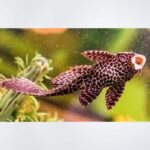

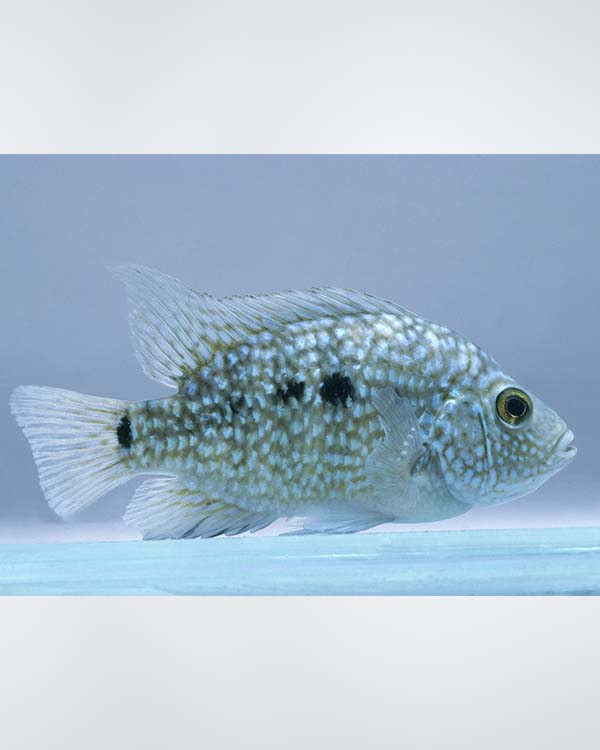

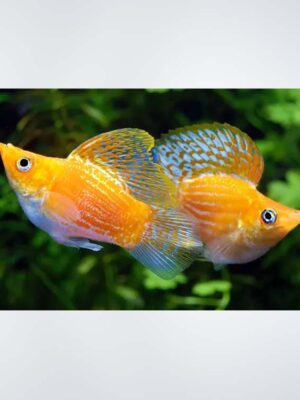

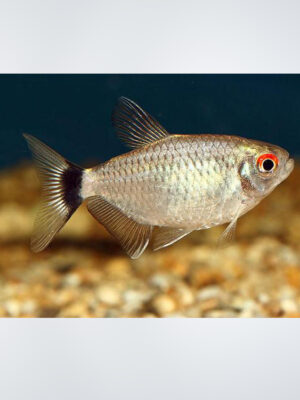
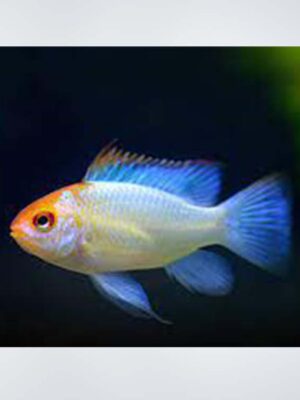
Reviews
There are no reviews yet.